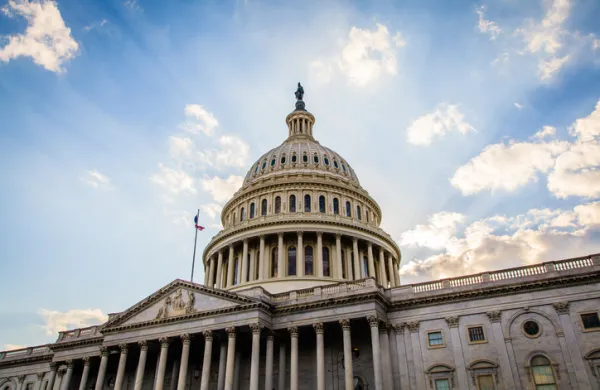At the start of 2023, the combination of rising interest rates, regional bank failures, and fears of a recession threw cold water on markets, including crypto. Then late in the year, as investors grew confident that spot Bitcoin exchange-traded funds would be approved by regulators, the price of the most popular cryptocurrency began to soar.
It was a challenging year for Jeff Park, portfolio manager and head of the Bitwise Multi-Strategy Alpha Fund, a fund-of-crypto-hedge fund. “In some ways, 2023 was exceptional because the crypto market was fairly dormant except for Bitcoin until the fourth quarter," said Park. Crypto markets are usually more dynamic, so the opportunities for arbitrage and market-making trading strategies weren't as good, he added.
However, last year also served as a good test, according to Park. When he joined Bitwise in 2022, Park was tasked with creating a crypto fund that would appeal to institutional investors. The only way to do that, he said, was by selecting managers and strategies focused on the nascent asset class that in concert would minimize losses while still capturing the upside — something it was able to accomplish in its first full year of operation.
The all-weather Alpha Fund had down months, but they weren't extreme — it never lost more than about 2.5 percent in a 30-day period, and it finished 2023 up 18.8 percent, according to client documents reviewed by Institutional Investor. Last year, the Alpha Fund’s annualized volatility was 14 percent and Bitcoin’s hovered around 40 percent.
The Alpha Fund's performance was better than most hedge funds in 2023 but trailed other crypto-focused funds. The HFRI Fund Weighted Composite Index, a measure of returns in the global hedge fund industry, gained 7.5 percent last year. Meanwhile, the HFR Cryptocurrency Index gained 65.8 percent. (HFR's crypto strategies are not included in the overall industry index because of the young asset class's volatility.) The S&P 500 index was up 24.2 percent in 2023.
“The downside-upside capture is exactly how I want it to be. That asymmetric upside capture is what is going to look different for this [fund] versus otherwise just being long beta” by just buying Bitcoin,” Park said.
All of the Alpha Fund strategies — a variety including event-driven, directional, liquid venture, arbitrage, yield, and quant — were up in 2023, according to client documents. Bitwise does not share details about the hedge funds it invests in, but some of them are run by professionals who formerly worked at well-known traditional funds, including Citadel and Bridgewater.
The Alpha Fund is still small, with just over $25 million under management. Almost all of its investors are family offices, other wealthy individuals, and crypto institutions. Park said the fund has had conversations with large pensions and endowments but none had invested yet. The manager is familiar with that group of investors. Before he joined Bitwise, he traded exotic equity derivatives for Morgan Stanley and worked for Harvard Management Company and Corbin Capital Partners, a multi-strategy hedge fund.
In January, a few days after an erroneous announcement on X, the SEC approved Bitcoin ETFs, a moment that Park called “Bitcoin's IPO” and one that set off tailwinds for the asset class and the Alpha Fund. The ETFs are spurring new financial products and opportunities — and inefficiencies that hedge funds can exploit. For example, asset managers have already filed requests to offer leveraged Bitcoin and Bitcoin options ETFs.
Investors are likely to underestimate the impact of the spot Bitcoin and related ETFs on the market, Park explained. Capital efficient leverage vehicles will mean new things to arbitrage.
“All of this financialization is actually really good because it creates unique trading opportunities that can navigate the fungibility of each of these products to their underlying market. So the Alpha strategy, at the core, we've always talked about it being long volatility, long volume, long value," Park said. “Those things are all true, but it's also long, what I call, financialization, [and] increasing financialization is very, very good for alpha.”







